The Day Ramos Was Heard
How a century-old Jim Crow law met its end at the Supreme Court
From the Lockerbox
This week marks the 6th anniversary of the day the United States Supreme Court heard arguments in Ramos v. Louisiana. I was there in the courtroom, holding the stories of all the people I knew behind bars who had been convicted without a unanimous jury.
When I first began raising the issue of non-unanimous juries, I was a jailhouse lawyer in Angola prison. All I knew then was the harm: men around me serving not just decades but life without parole on verdicts that weren’t unanimous. A jury split 10-2 or 11-1 was enough to lock a person away for the rest of their days. It wasn’t until I came home and started researching that I realized where that law came from.
It turned out that Louisiana adopted non-unanimous jury verdicts in 1898, right after Reconstruction, for a reason: to silence Black jurors and preserve white supremacy. Oregon followed with its own version in 1934, also aimed at minimizing minority voices. Louisiana and Oregon stood alone; everyone else in America recognized that the promise of justice requires all 12 voices on a jury to agree before taking away someone’s liberty.
When I learned that history, I thought: The courts don’t know this story either. If they did, surely they would fix it. That’s when I went to Ben Cohen, a Louisiana lawyer who shared my conviction. For years, we prepared petition after petition to the U.S. Supreme Court. Twenty-three times, we asked them to listen. Twenty-two times, the Court said no.
But on the 23rd petition—Ramos v. Louisiana—the Court finally agreed to hear the case.
Walking Into the Courtroom
I will never forget the feeling of walking into that marble building in Washington, D.C., knowing that my brothers and sisters in Louisiana and in Oregon were depending on what would happen inside. For me, it was more than a legal argument. It was the chance to expose a system that had ruined lives and families for more than a century. I could only think of the guys I knew still waking up every morning at Angola because two jurors said Not Guilty and the legal system ignored them.
When the justices began asking questions, right away, I heard the recognition in their voices. They were wrestling with the history. They asked questions about the harm. It felt like they were truly listening.

The Decision
In April 2020, the Court handed down its decision, affirming that the Sixth Amendment means what it says: a conviction requires a unanimous jury.
Thousands of people in Louisiana and Oregon suddenly had new hope. Not everyone would get relief—we still have work to do in Louisiana to make sure people already convicted by non-unanimous juries at the time of the ruling will get their day in court—but it was still a crack in the wall. Proof that twenty-two “no’s” can still lead to one “yes.”
I know a single Supreme Court decision can’t undo 120 years of harm. That too many laws still carry the same white supremacist roots that gave us non-unanimous juries. But anniversaries like this one remind me why we have to keep pushing.
I’d love to hear what issues you’re working on, big or small, in your own community. It’s always encouraging to see how each of us is finding ways to keep widening the cracks in the wall.
The Jailhouse Lawyer Reaches Incarcerated Readers
Over the past 3 months, Penguin Press and Penguin Random House have been working with us to distribute 3,000 free copies of The Jailhouse Lawyer to prisons across the country. It has made me SO HAPPY to hear from people on the inside that they have been able to access and read my story. Thank you for all your support with this initiative (read more on my Books for Incarcerated Readers page). This past week, the Louisiana Parole Project helped deliver copies to Angola and other Louisiana prisons. We are very grateful to them and other organizations doing the same throughout the country.
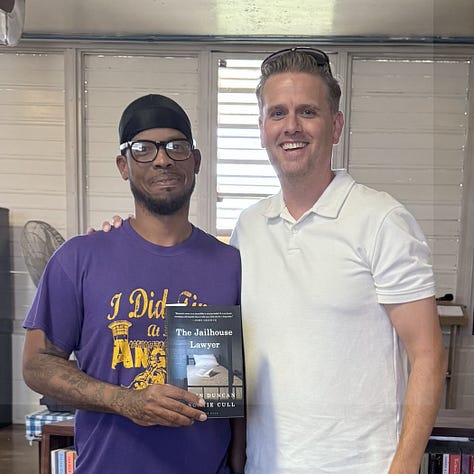
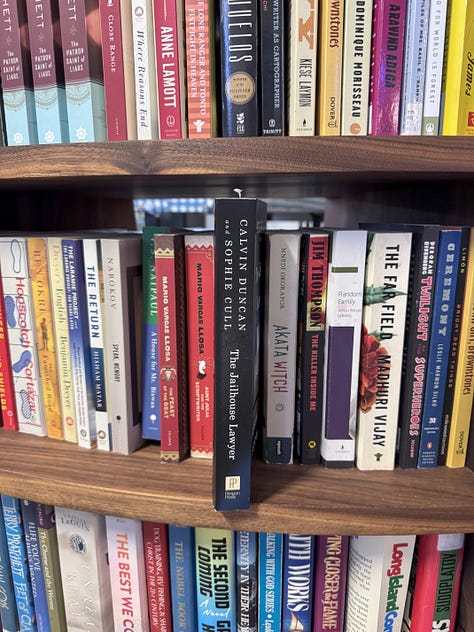

Spreading the Word and Staying Connected
Thank you to everyone who’s left reviews of The Jailhouse Lawyer on Amazon or Goodreads, it makes a real difference in helping the book find new readers.
If you can, please encourage friends and family to leave a review too. You can leave a review on Amazon even if you bought the book somewhere else.
And if we’re not already connected on Instagram or Facebook, I’d love for you to follow along. That’s where I share updates, events, and news about my work.
Instagram: @jailhouse_lawyer
Facebook: @calvinthejailhouselawyer
Upcoming Events
Stephen & Laurel Brown Foundation will be hosting an author talk at Upper House in Madison, WI on October 8 at 7pm. More details here.
Join us for opening night of the Words & Music festival at the André Cailloux Center for Performing Arts and Cultural Justice in New Orleans on November 19 at 6:30pm. Tickets here.


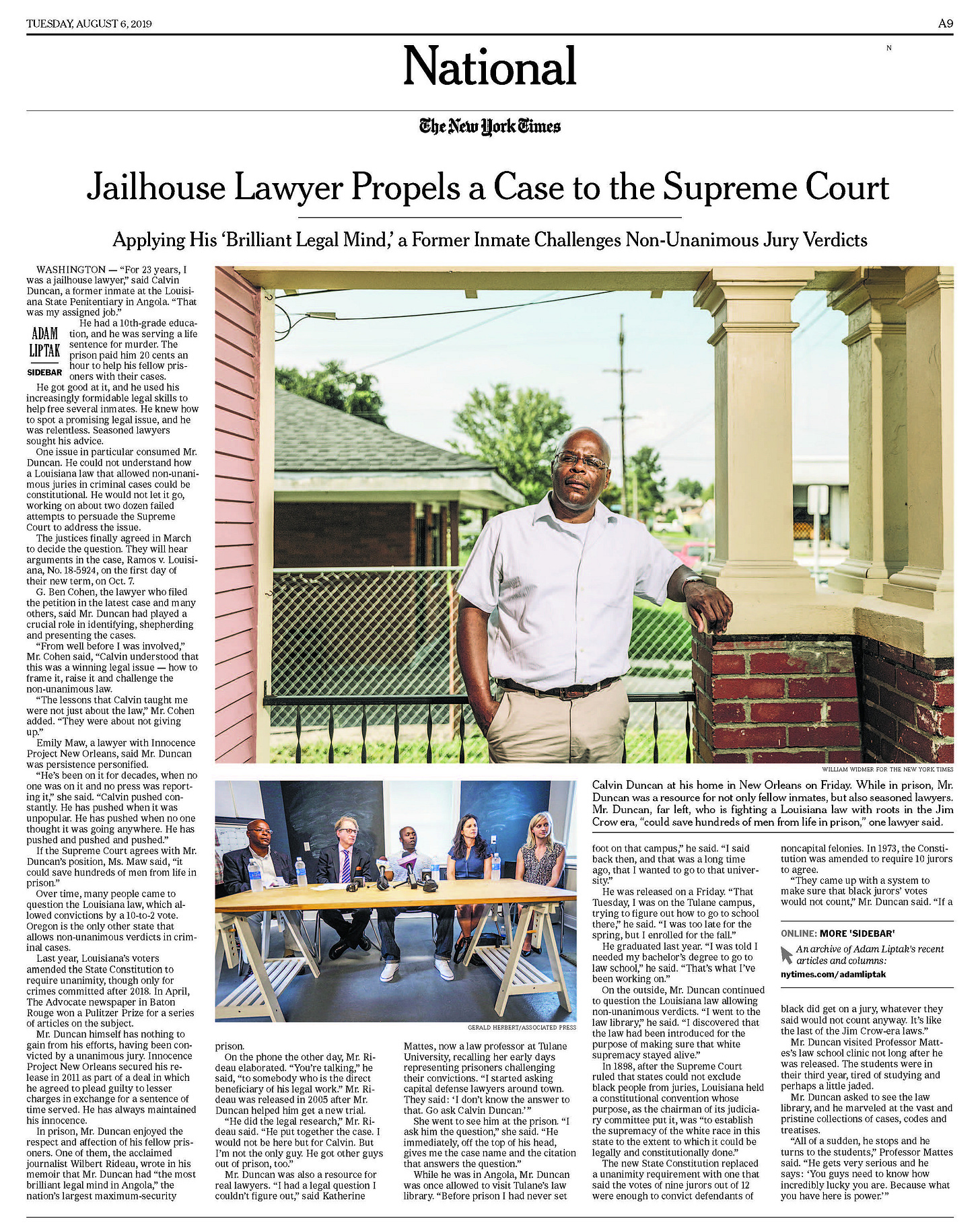
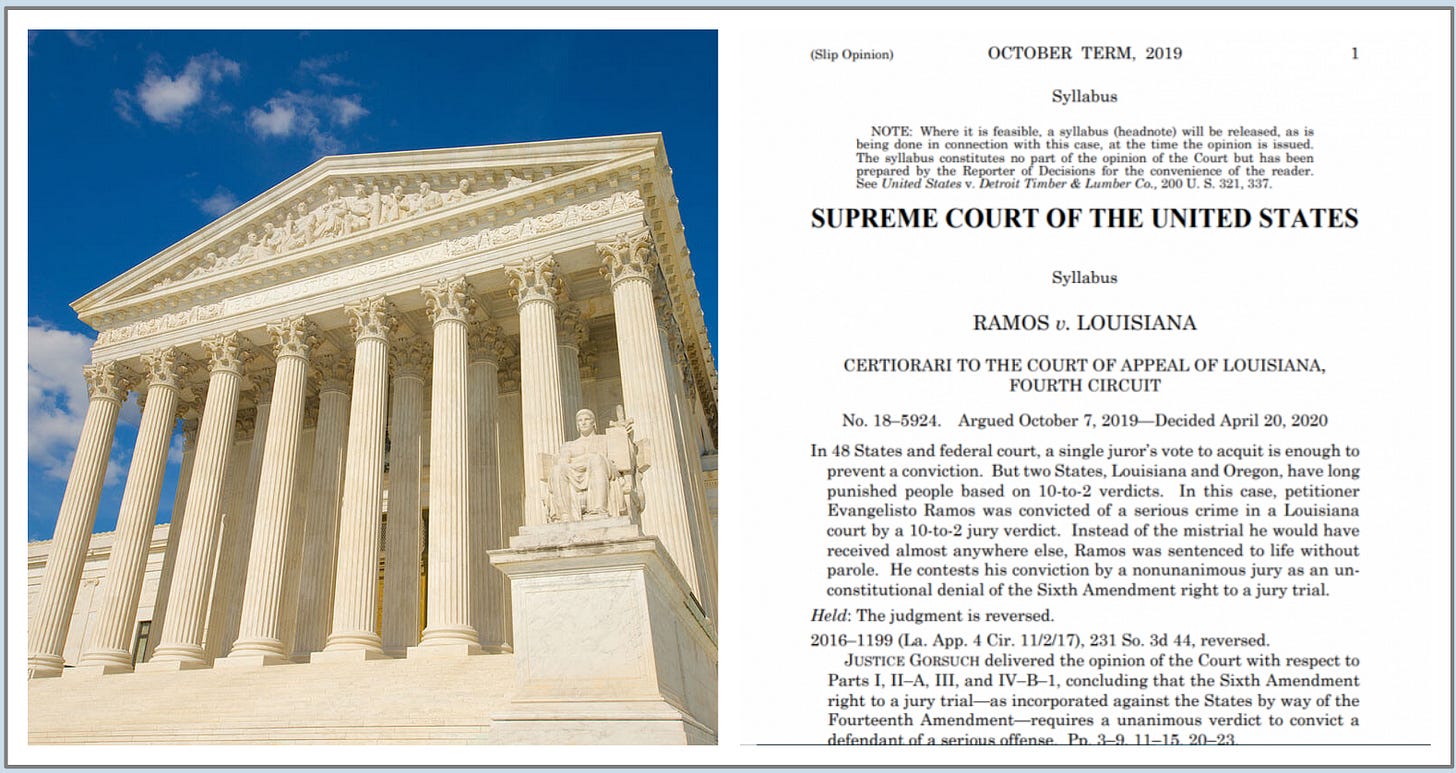
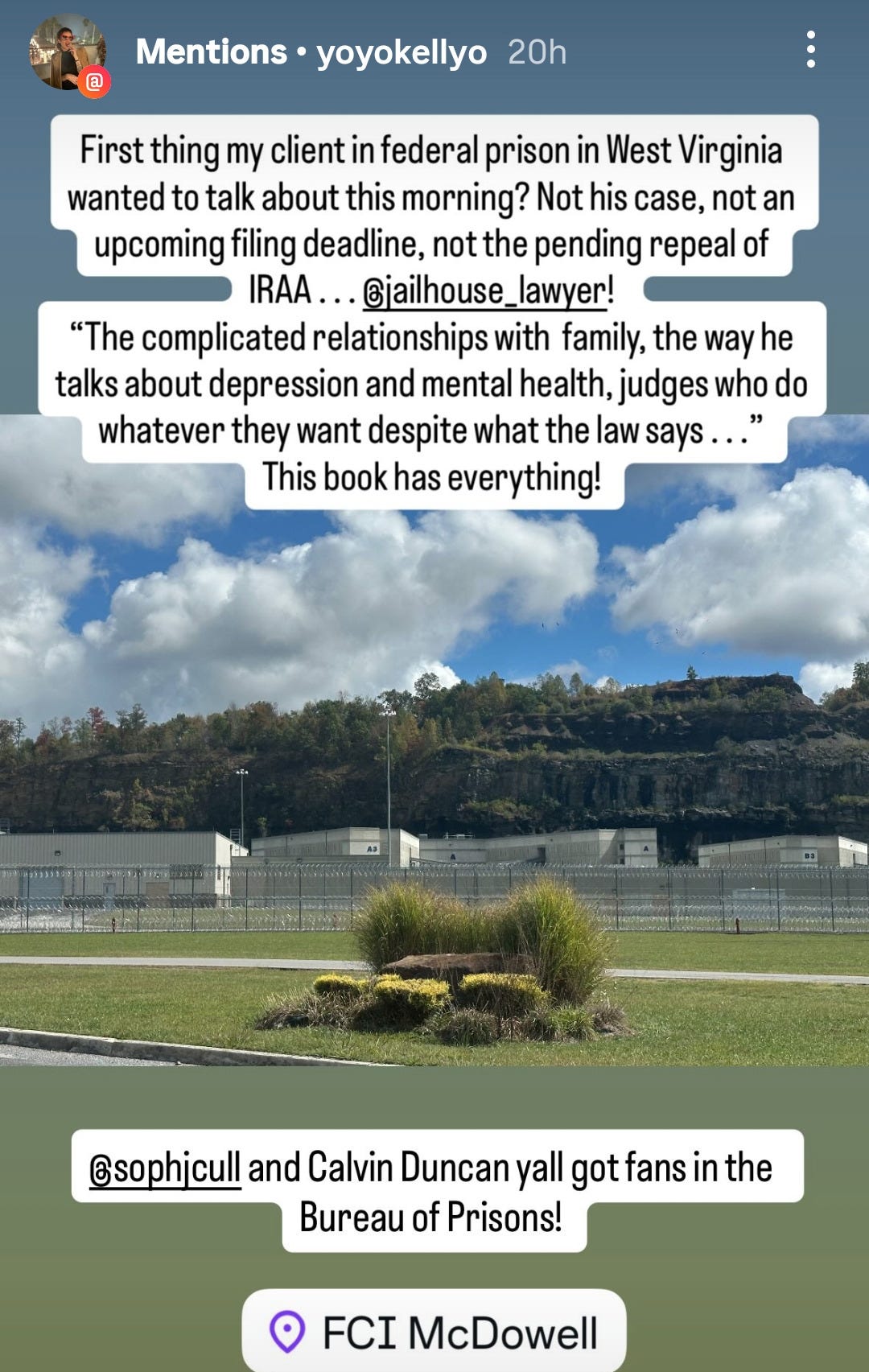

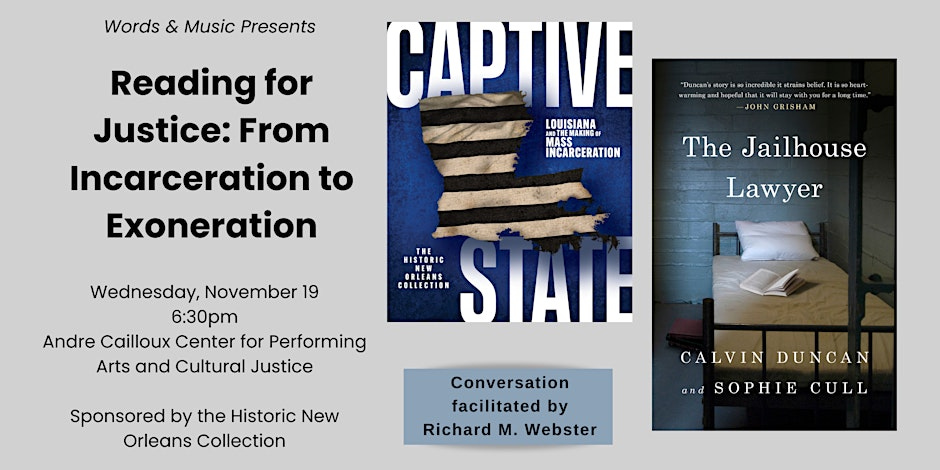
PS. I also love the story about the book making its way into the hands of people incarcerated around the country.
Wow, 23 times to get the Supreme Court to pay attention to the grave, racist injustice of non-unanimous juries. What a monument to persistence and commitment. Now we need to get Louisiana to make Ramos apply to those already incarcerated. It's so crazy that something deemed unconstitutional is not unconstitutional for all.